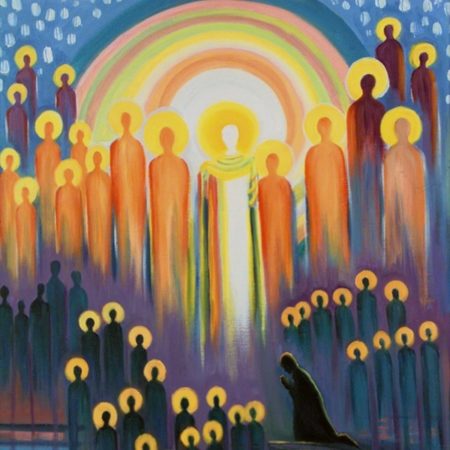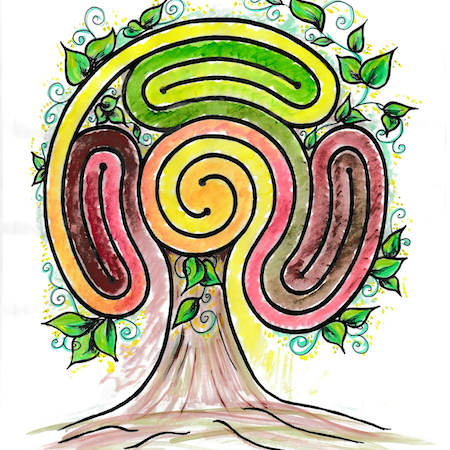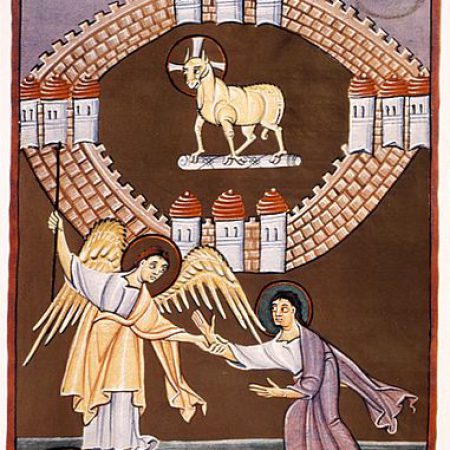Christ’s grief gathers up our griefs and achieves the promise of a day when tears will be no more.
Sermons on Revelation
Living the beatitudes is tough and dangerous, and we will need the inspiration and company of the saints, before us and beside us, if we are going to make it.
Much traditional morality is based on the idea of separation into binary categories, good and bad, but the Bible also points a path towards a liberating non-binary future in God.
The Revelation’s surprising image of the absence of church buildings in the fulfilled holy city is a helpful reminder that they have always been a risky concession and that their dangers need to be carefully avoided.
As we gather with the saints of all times to worship the crucified victim, we are immersed in a culture that is so at odds with the values of this world that those who truly embrace it just appear odd for now, but strangely and alluringly familiar too.
Salvation belongs to Christ alone, but those who have fought and died for other forms of salvation are among those with whom Christ identifies himself; fellow victims of the atrocity from which Christ is saving us.
The whole story of the universe, from creation to ultimate redemption, is held in God’s hands and revealed in the crucified and risen Christ, and all our stories are gathered safely into that larger story.
Jesus is the model for rightly honouring the victims by exposing and resisting the systems that sacrificed them.
Jesus’s resurrection was a sign which declared that Jesus’ cause was God’s cause, that Jesus’ values were God’s values, that Jesus’ people were God’s people.
Christ’s story – the crucifixion of the truly good and its resurrection and coming victory – is the whole story of God’s work in the world and the whole story of the Bible.
In our worship we drink in the vision of heaven and earth made one so that our yearning might be fuelled; strengthening us against despair and empowering us to strive for the renewal of the world.
Following Christ may take us into costly confrontation with the powers of the world, and we cannot be protected from the costs of that, but Christ will bring us through to the land of promise beyond.
Our worship is a part of a cosmic liturgy of praise to the One who was slaughtered in reconciling a suffering universe to God.
Locating our struggles within the bigger picture of God’s purposes can give hope and purpose, but it also places us in a challenging place of priestly mission.



